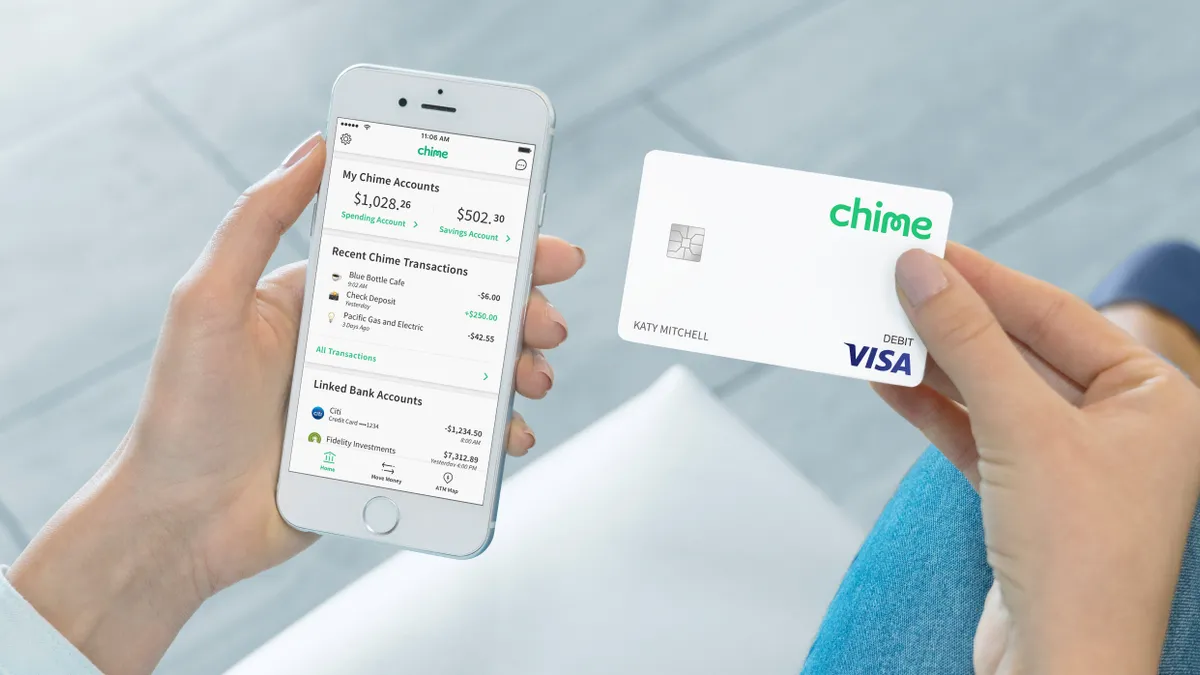Dive Brief:
- Challenger bank Chime has closed a round of fundraising that puts its worth at $14.5 billion, leapfrogging Robinhood as the most valuable U.S. consumer fintech, CNBC reported Friday.
- At that figure, the company has more than doubled its valuation since December and jumped nearly ninefold since March 2019.
- Chime will be "IPO-ready" in the next 12 months, but the company isn't wedded to that time frame, CEO Chris Britt said.
Dive Insight:
Chime has more than tripled its transaction volume and revenue this year and is adding hundreds of thousands of accounts each month, Britt told CNBC, without noting how many total users the challenger bank has.
The business boost stands in sharp contrast to some of the pandemic-era losses suffered by big U.S. banks, which have had to set aside billions of dollars in the past three quarters in the event loans sour. The KBW Bank Index has lost about one-third of its value this year, CNBC reported.

The contactless nature of Chime's model has benefited the company, Britt said.
"Nobody wants to go into bank branches, nobody wants to touch cash anymore, and people are increasingly comfortable living their lives through their phones," Britt said. "We have a website, but people don't really use it. We're a mobile app, and that's how we deliver our services."
Investment firms including Coatue, Iconiq, Tiger Global, Whale Rock Capital, General Atlantic, Access Technology Ventures, Dragoneer and DST Global participated in Chime's latest $485 million Series F round.
Chime will have almost $1 billion in cash after its fundraising, an anonymous source told CNBC. Despite that money's potential purchasing power, Britt told the network he has no current interest in acquiring an FDIC-backed institution.
Robinhood, the previously top-valued fintech, raised money last month at an $11.2 billion valuation. The trading app has seen its client base exceed 13 million accounts. About 3 million of those have opened since the end of 2019, eclipsing gains by competitors E*Trade, TD Ameritrade and Charles Schwab, according to Bloomberg.
It has seen these gains in a year that has presented consistent hurdles. The company suffered a series of outages in March that left traders unable to access the platform on a day when the Dow Jones Industrial Average posted its greatest percentage gain since 2009. The mishap spawned a class-action lawsuit and a controversial offer by the company — a $75 goodwill credit that an attorney for the plaintiff saw as hush money. In June, a 20-year-old day trader who thought he had racked up a negative $730,000 cash balance mentioned the company in his suicide note. And in July, Robinhood indefinitely postponed a plan to launch its app in the U.K.














